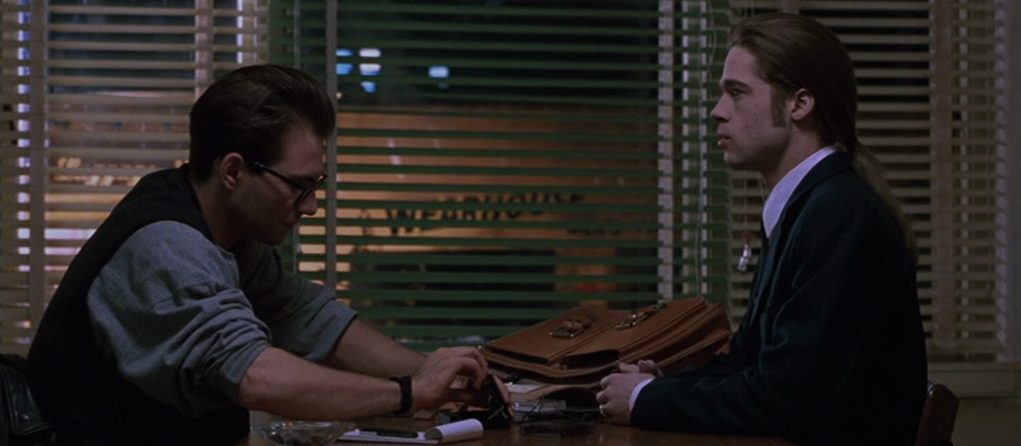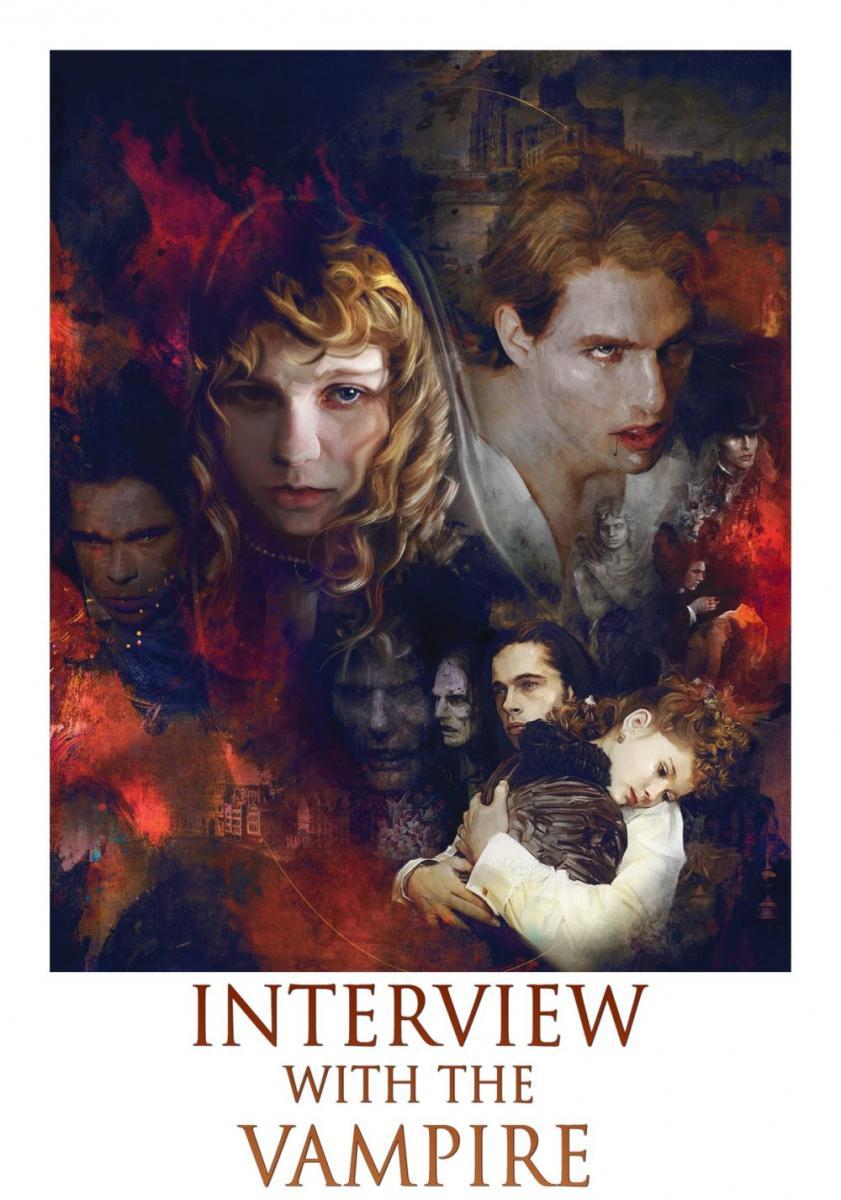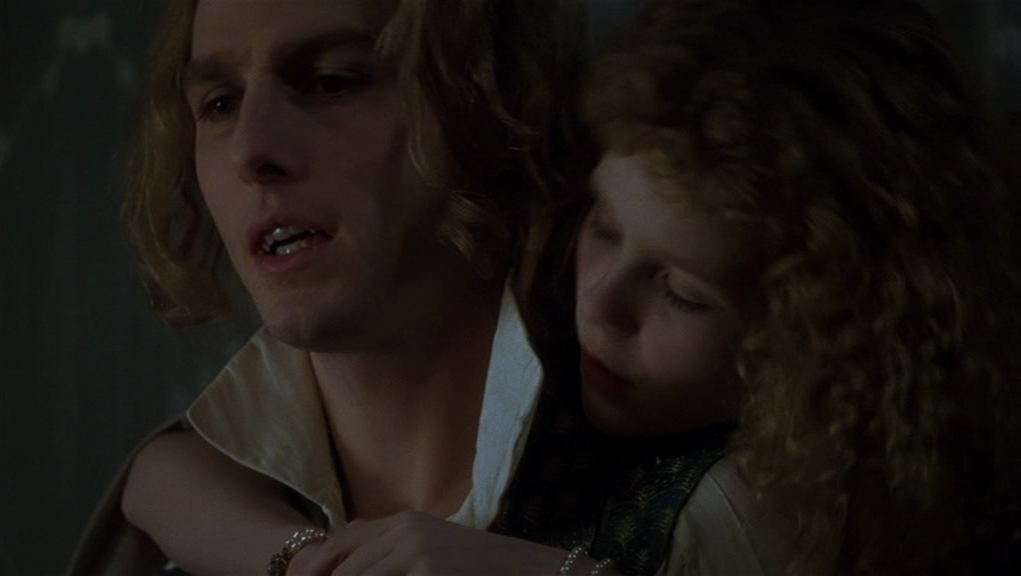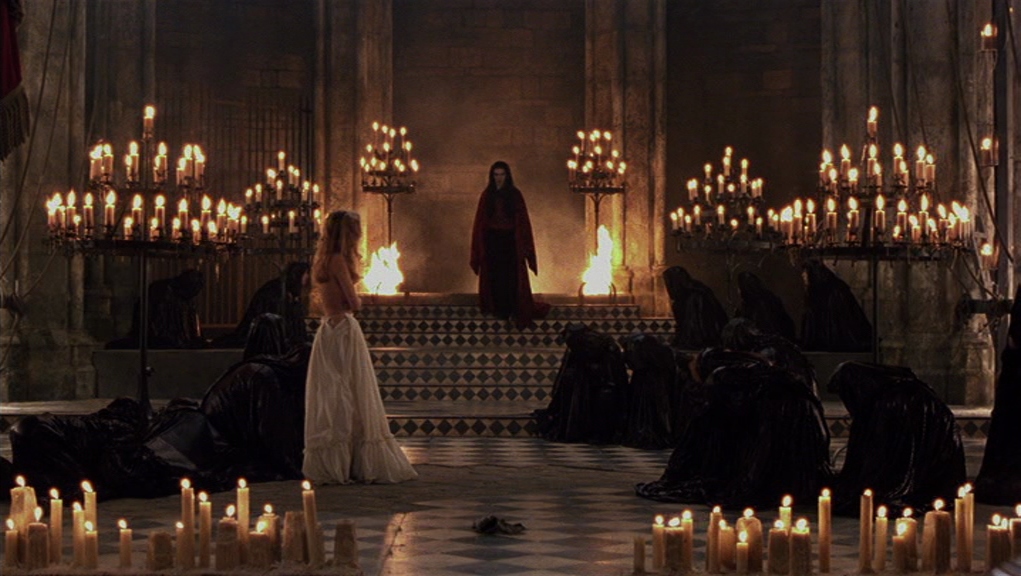

“The world changes, we do not. There lies the irony that finally kills us.”
Between the two of them, Brad Pitt and Tom Cruise have acted in over one hundred films. They both have a tilt toward blockbuster heroism, though they each can handle dramatic roles when inclined to do so. Their presence in the modern cinema landscape is ubiquitous, and you’d have to assume they’ve crossed paths on screen somewhere. You’d be right, but it only happened once, in a semi-poignant, semi-trashy, homo-erotic vampire film in the 1990s. Interview with the Vampire was released during a resurgent period for classic horror, which perhaps explains why Cruise was so insistent on landing the role of the vampire Lestat, against the wishes of Anne Rice, who wrote the novel upon which the film is based and the screenplay. The film is more ambitious than the likes of Coppola’s Dracula or Branagh’s Frankenstein, with director Neil Jordan trying to keep a balance between character study, shock horror, and period drama, but these very ambitions result in a lumpy, erratic experience, but one that is not without some merit in its performances and aesthetics.
The story is framed by an interview in the present day, between a man who claims to be a 200-year old vampire named Louis de Pointe du Lac (Pitt) and an anxious reporter named Daniel Malloy (Christian Slater). Before he became a vampire, Louis was a wealthy plantation owner in late 18th century Louisiana. Despondent after the death of his wife and unborn child, he begins to live dangerously, drinking, gambling and whoring his way into a nihilistic stupor. Lestat offers him the opportunity to become a vampire, and he accepts, only discovering a newfound humanity once the deed has been done. Louis describes for Daniel his complex relationship with the ancient villain—his initial disgust at Lestat’s bloodlust compared to his own hesitance, his attempts at sating himself with animal blood, his moment of weakness when he sank his teeth into the neck of young Claudia (Kirsten Dunst) during a plague outbreak, his multiple attempts at ending Lestat’s deathless life, and his search for others of his kind. As he spins his tale across the centuries, he tells of introspective moments, intense encounters, and humorous incidents, all the while painting himself as a victim of tragedy and sorrow.

It’s difficult to assess Interview with the Vampire because it seems uncertain of what it wants to be. Pitt never looks quite comfortable in the make-up and period get-up, but that’s because he’s playing Louis straight—he’s a tragic figure, caught between the desires of his altered nature and the remnants of his human conscience, dealing with an inescapable sense of guilt and locked into an eternal existential crisis. At times the screenplay delves too far into self-pity which tends to sap away some of the sympathy he had garnered in the film’s early going, but for the most part it’s a role with decent depth that Pitt adequately handles. It’s not his fault that his character willingly chose to become a vampire and then spends the rest of the film whining about it. Cruise, on the other hand, dominates the screen by acting in such a ridiculously excessive manner that I struggle to take Lestat seriously as a character. It is his performance that most closely resembles the campy gothic soap opera vibe that I glean from descriptions of Rice’s (still-ongoing) series of vampire novels that I’ve never read (and so I could be way off in my cover-judging assessment). But not every movie has to take itself seriously, and I think this one works best when Cruise is allowed to go crazy. Up to that point in his career, he had never portrayed a villain, let alone anything remotely comparable to a bisexual vampire in a frock coat. But he was a big star and wanted the role, which meant the film would make money, so who was going to turn him down? Thankfully, his pivotal performance is the highest quality of ham. He wrings the blood of a rat into a wine glass, snaps the neck of an elderly seductress who is about to reveal their secret nature, dances around with the corpse of a plague victim, and gazes lustfully at anything with a pulse. He’s clearly having a lot of fun, and he’s fun to watch, though his charismatic scenery chewing doesn’t always jibe with Pitt’s somber, somewhat stiff demeanor.

But somehow, eleven year old Kirsten Dunst steals the show from both of her co-stars. Initially an unfortunate victim of circumstance, Claudia is adopted by Louis and Lestat and the trio become something of an odd little family. She has a challenging role, as her “childhood” soon passes and her intellect matures, yet she remains in a child’s body (and Kristen Dunst was still a eleven year old girl commanding the screen). She inhabits a curious role as the precocious child of Louis and Lestat but also as their equal. Once she learns their vampiric ways, her appetite for human blood exceeds even that of Lestat. Whereas the genteel, sophisticated Lestat will wine and dine his prey before taking them unawares, Claudia is a little firebrand who will go for the jugular at the first opportune moment. In lesser hands her role could have been a gaudy triviality, but Dunst provides some surprising emotional depth.
Once Lestat is “killed” and Cruise leaves the screen for an extended period, the film unfortunately starts to drag. Louis and Claudia settle in Paris, where they encounter Armand (Antonio Banderas) by chance, and his coven of vampires abduct them and punish them for Lestat’s murder. The ending of Louis’s story feels inevitable, as he returns to New Orleans, sans Claudia, to find a withering, weakened Lestat living in the shadows of an abandoned mansion. When he concludes his interview with Malloy, the young reporter requests that Louis turn him into a vampire. Obviously, after relaying his tale of sorrow and regret, to receive such a request is disgusting to Louis, who spooks Malloy and then disappears, leaving a surprise for Malloy in his car for the ride home.
Though it’s flabby and uneven, Interview with the Vampire is undeniably fun. Genre films such as this one don’t often receive large budgets, and Neil Jordan and his crew really gave it their all. Great effects from the legendary Stan Winston, Cruise’s kitschy performance, Dunst’s commanding presence. It’s a shame that it doesn’t shape up a bit better, that Pitt was miscast, and that it largely ignores the complex themes that the novel is known for exploring. But there are many splendid elements here and it’s got some solid camp value.